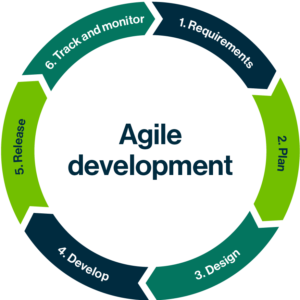New data is generated every day, every minute and every second. Data is becoming more readily available and in new forms. All of this means that data is presenting more and more opportunities for innovation at any instance. However, many organizations are struggling to evolve their workforces at the same pace as the evolving datasphere. The problem is that these organizations don’t have the right data culture. In order to achieve Data Intelligence, businesses need to forge a data culture and empower their workforce with data governance.
Defining a data driven culture
Every organization wants to be data driven. A data driven organization is synonymous with an innovative, competitive and profitable organization. But building a data driven enterprise requires foresight. When embarking on this journey for digital and cultural transformation, it’s essential to have a vision of what your end state looks like.
Your organization’s definition of a productive and successful data culture may look different from those of many others; your definition should be aligned with your organization’s unique characteristics and promote your business objectives. Nonetheless, a strong data culture typically encompasses the following components:
- Access to quality and trustworthy data
- High levels of data literacy
- Consistent and constructive cross-functional collaboration around Data Intelligence
- Clearly defined and embraced data roles and responsibilities, such as data owner and data consumer
- Adoption of technology that facilitates data use and analysis
- Data citizens who feel empowered to make critical decisions based data
How do you create a data culture
Forging a data culture is one of the most prevalent challenges facing Chief Data Officers today. Even after developing a robust strategy for digital transformation, data professionals often fail to get desirable results because they cannot engrain data’s value in their organization’s culture. When developing a firm data strategy, it is essential to keep your company’s perception of data in mind. Embrace these tips when promoting a data culture in your organization:
- Identify key stakeholders: data affects every line of the business, from IT to marketing, from finance to supply chain, from analytics to legal. In order to develop a solid strategy and transform the culture, you must get the right people in the room to help you endorse change.
- Present relatable narratives: once you have the right people in the room, inform them how data affects their day to day work. When people are given evidence that contradicts their already established beliefs and opinions, they are likely to become more steadfast rather than challenge their own initial thoughts. When trying to get buy-in from stakeholders, you must anticipate emotional responses and use that knowledge to create an effective communication strategy.
- Connect data to business objectives:further, data affects more than just the quotidian activities. Data Intelligence drives optimal business outcomes, so they relate to the organization’s high level objectives. Underscore that a data enabled organization can drive the following results:
-
- Revenue growth – customer acquisition, product innovation, promotion analysis, pricing optimization
- Operational efficiency – supply chain optimization, product inventory efficiency, marketing and sales efficiency, service optimization
- Risk mitigation – data privacy compliance, personal information (PI) data discovery, policy enforcement, vendor risk management
- Data modernization – third party spend reduction, data lake optimization, report/application consolidation, reference data management
- Promote collaboration: a critical component of creating a data culture is also embracing a collaborative culture. Demonstrate that all employees across teams can make their lives easier and achieve their business goals by collaborating around data.
- Educate and train your workforce: it is essential to educate and train your team on the value of data and how to optimize its availability. Having familiarity and comfort with data empowers your team to embrace cultural changes around data and optimize data use.
- Remain agile: consider the agile methodology. This is the approach that the most innovative technology companies apply when developing a new software; they recognize that demands and solutions to problems evolve over time. Likewise, no organization will transform its data culture in one easy sweep. Listen to all team members, so you can learn what’s working and what’s not. Be open to adjusting your strategy and tactics, so your data culture evolves.

Achieving effective data governance
BARC, a Teknowlogy Group company, conducted a survey of thousands of data professionals and nearly half of respondents said their organizations suffered from inadequate data quality and more than one-third said this would be an ongoing problem in the future. These companies put in a lot of manual effort to keep data at an acceptable quality, which costs money and diverts human resources from other, more value-adding work. It also increases risk – sometimes poor data quality can even be responsible for the failure of revenue-generating projects undertaken by the business. Companies clearly need to have a common understanding of data quality standards across the organizational structure. They need data governance.
A strong foundation of data governance will allow organizations to develop a strong data culture. Good data governance ensures that the massive amounts of data in an organization can be harnessed for business value. Ungoverned data is messy, rule-less and cramps productivity. Data governance empowers an organization to trust their data to answer important business questions.
A good data governance framework includes policies, procedures, processes, and rules along with the right organizational structure and the technology to make it all happen. Get your teammates and data working together to:
- Eliminate information silos across the organization
- Gain visibility into to data, where it came from, and how it’s used
- Monitor and maintain high quality data
- Implement policies for regulatory and organizational compliance
- Protect and secure sensitive information protected
By implementing a data governance framework, you can build a foundation for intelligent data use. You can use data governance to enable a data culture.
Turning data vision into reality
Building a data driven culture is no easy feat. Nonetheless, by connecting the right people with the right data and building a foundation of data governance, you can transform your organization into a data intelligent enterprise.




